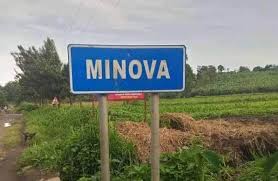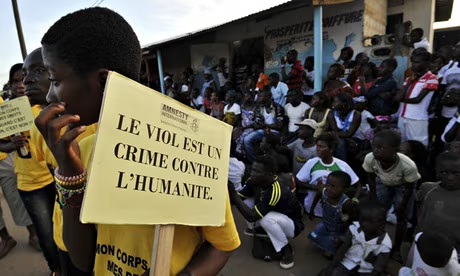Freetown, 20 March 2024: IHRDA and partners have concluded a public dialogue with key stakeholders in Sierra Leone on the implementation of judgements of the Court of Justice of the Economic Community of West African States (the ECOWAS Court) on some cases relating to sexual and gender-based violence in Sierra Leone.
The event that brought together Government institutions (notably the Ministries for gender, justice, social affairs, education and finance, and the national commission for children), the National Human Rights Commission, local and international child rights NGOs, and the media, focused on the cases ECW/CCJ/JUD/32/22 – Adama Vandi v. Sierra Leone decided in July 2022 and ECW/CCJ/JUD/37/19 – Women Against Violence and Exploitation in Society (WAVES) & Child Welfare Society, Sierra Leone (CWS-SL) (On Behalf of Pregnant Adolescent School Girls in Sierra Leone) v. Sierra Leone decided in December 2019. Participants assessed level of implementation of the decisions on the said cases, and discussed and committed to pursue strategies for achieving full implementation of the decisions.
It should be recalled that in the first case, Adama Vandi (represented by IHRDA) alleged she was raped in January 2019 by an influential traditional chief and Member of Parliament. Though she reported the incident and took several medical tests proving she had been sexually assaulted, there was no effective investigation, and the perpetrator was not punished. In July 2022, ECOWAS Court condemned Sierra Leone for failing to guarantee Adama’s right to remedy, access to justice, and protection from cruel, inhuman and degrading treatment, and ordered Sierra Leone to pay her compensation worth Ten thousand US Dollars (USD 10,000).
The second case nicknamed the pregnant girls’ case was filed at the ECOWAS Court by WAVES and CWS-SL (represented by IHRDA and Equality Now), challenging an official policy that banned pregnant girls from attending mainstream schools and sitting exams in Sierra Leone, which was a violation of their right to education. In December 2019, the ECOWAS Court established that the policy was a discrimination against pregnant girls and a violation of the right to equal education for all children. The Court ordered Sierra Leone to revoke the policy and abolish the separate school system for pregnant girls, among other measures.
“A major challenge in the African human rights system is the low level of States’ compliance with decisions of mechanisms. We recognize the fact that Government of Sierra Leone has made some commendable strides, especially towards implementing the decision in the pregnant girls’ case. However, further engagement with stakeholders in Sierra Leone is important to boost efforts for full implementation of these decisions” – IHRDA Advocacy Officer, Lydia Kembabazi, stated.
The public dialogue falls within the framework of an Open Society Foundations-supported project to strengthen human rights accountability through compliance of States with decisions of African human rights mechanisms.







